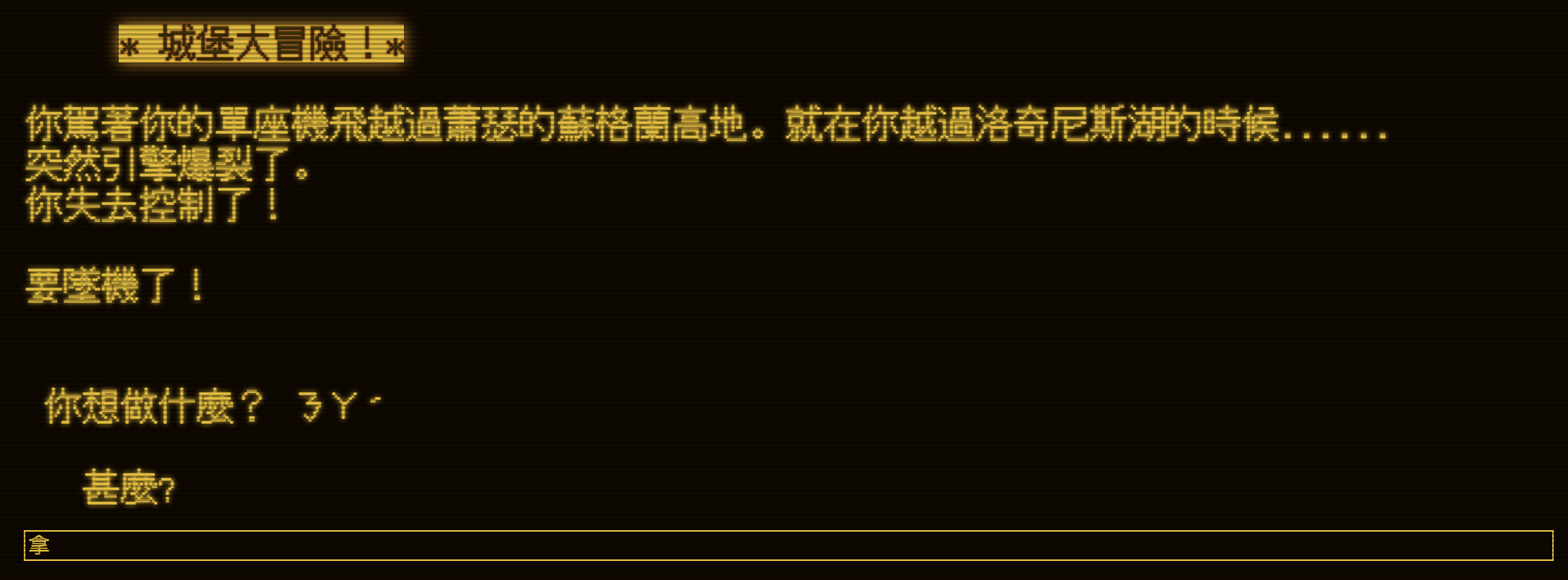Hi all,
As I was testing the game in Traditional Chinese, I found that action commands were not coded to accomodate languages that don't have spaces between words (Chinese, Japanese, etc.)
The code requires the input to be 拿 降落傘 (TAKE PARACHUTE), but a typical player would type 拿降落傘 (no space).
To fix this, go to: IFEngine --> js --> Parser.js. Do the following in Parser.js:
1. Change line 75 from
"(?:\\s+(.+))?" :
to
"(?:\\s*(.+))?" :
2. Change line 76 from
"\\s+(.+)";
to
"\\s*(.+)";
This will allow the game to process user inputs that don't contain spaces in the text.
Note: this change won't break the original game (IT, EN). The user will still be able to input "TAKE PARACHUTE" however, this change would also allow "TAKEPARACHUTE" as a valid input. Not sure if this is a behavior that the original devs want to allow.



